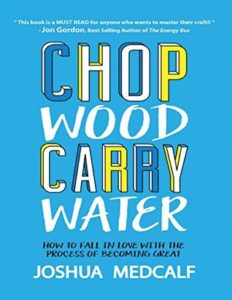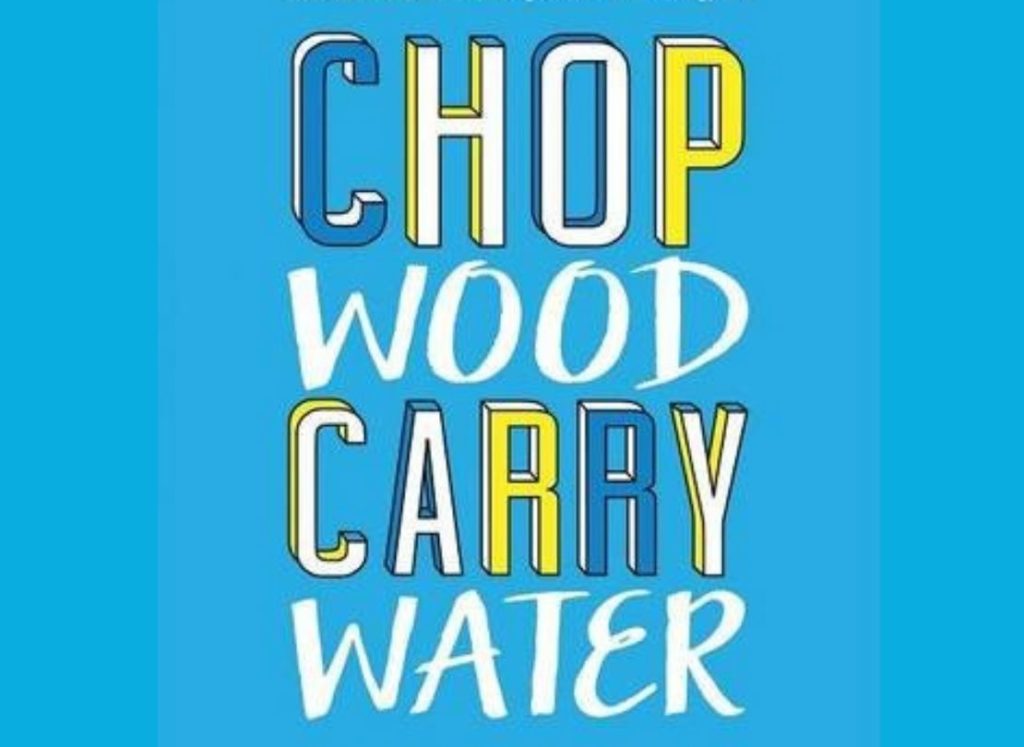I recently listened to Eric Cressey’s Elite Baseball Development podcast. His guest was Dusty Blake, pitching coach for Duke University’s baseball program. Coach Blake mentioned that one book he recommends to incoming freshmen is Chop Wood, Carry Water: How to Fall in Love with the Process of Being Great by Joshua Medcalf. Coach Blake suggests this book because it espouses the virtues associated with having patience while pursuing what can be a winding path through a player’s college baseball career and beyond.
Having multiple high school clients, including two Division I baseball commits, I felt as though reading this book would be beneficial for me. I make it a habit to share books that I love with my athletes and felt like this book could be a nice addition to my collection if Coach Blake’s recommendation was on-point. Not unexpectedly, I loved this book for three specific reasons.
Perhaps the number one reason I loved this book is that it is short and to the point. The book’s message was conveyed in just 117 pages. Each chapter was roughly three to five pages long, yet the pages were packed with lessons that would take most books two to three times as many pages to convey. The clear and concise writing should give young athletes a better chance of getting through the book without their eyes glazing over.
Next, Chop Wood, Carry Water is told in a story form. It is not a textbook and does not have a lecturing style. Rather, it tells the highly relatable story of a young man named John on his journey to find greatness. Further, it highlights the relationship of John and his coach, Sensei Akira. The story follows John over the course of roughly 10 years. During that time, John undergoes many ups and downs, often disappointed when things don’t go as planned. Without fail, Sensei Akira is there to guide John through difficulties reminding him that the road to greatness is a marathon, not a sprint. Young athletes should be able to easily relate to the dynamic between John and Akira based on their own experiences with coaches, teachers, or parents.
The final and most important reason that I loved this book is that it teaches mental skills using clear examples in the story that allow for practical application. Oftentimes, I teach mental skills to my young athletes in a linear way. I tell them what I think they need to know, they nod their heads, and I send them on their way. This book allows the reader the benefit of perspective. I was able to view mental skills being taught by Akira to John from a third-person perspective in the context of John’s pursuit. I feel as though this perspective will likely be highly valuable to young athletes who often hear things from mental performance coaches, like “control the controllables,” “have a growth mindset,” and “be where your feet are” without being given any context to back up these platitudes.

My favorite chapter in the book is Chapter 28 entitled “Principles instead of Feelings.” In this chapter, Akira tells John that “living by our feelings is like riding an emotional rollercoaster” after John returns from the hospital after sustaining an injury that would delay his normal training by a few months. Akira goes on to articulate that there will be many days where John isn’t going to feel like doing what needs to be done to progress toward his goals. However, favoring principles over feelings minimizes the waves and allows for more consistent effort on a daily basis. Ultimately, Akira asks John to outline four principles that he would like to live by. In the story, Akira has essentially served in the role of mental performance coach helping John to become aware of his thoughts and feelings and specifically seeking to help him change those thoughts and feelings through focused effort by putting those principles into the universe. Honestly, I couldn’t have done it better myself.
The title of the book Chop Wood, Carry Water refers to the mundane tasks any athlete must do in order to achieve greatness. Many days the athletes that I work with do not want to embrace the process because they don’t feel like it or because they aren’t getting the desired results fast enough. As a mental performance coach, I find myself incessantly preaching about process to my athletes almost certainly to their dismay. Yet, many don’t appreciate the value of embracing the process until they get to where they want to go. However, John’s story can help young athletes appreciate the value of embracing the process and perhaps get a glimpse of their future at the same time. I absolutely echo Coach Blake’s recommendation and have already shared this book with three of my clients since finishing it. I urge you to read it, as well.

